-
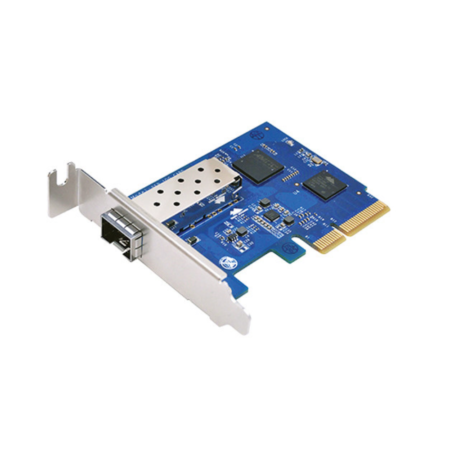
Synology Ethernet Adapter E10G15-F1
Read moreInstall the Synology E10G15-F1 Ethernet Adapter into Synology XS+/XS Series NAS servers and take advantage of 10 Gbps data transfer rates over the single SFP+ port. This PCI x4 adapter is also compatible with the IEEE 802.1Q, 802.3x, and 802.3ae networking standards and operates in Full Duplex mode.
-
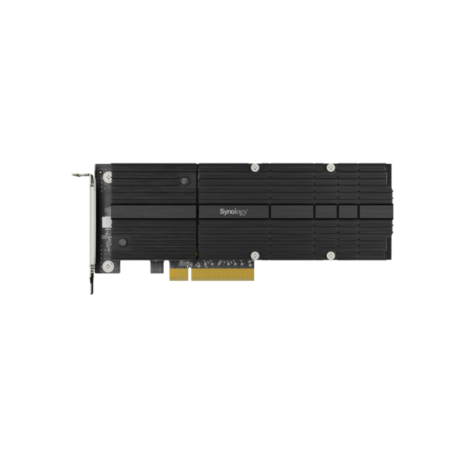
Synology Dual M.2 NVMe SSD Card M2D20
Read moreSynology M2D20 is a M.2 NVMe SSD adapter card designed to supercharge your NAS I/O performance. The multi-queue capability of NVMe SSD greatly benefits latency-sensitive applications such as photo indexing, file search, and virtualization deployments.
-
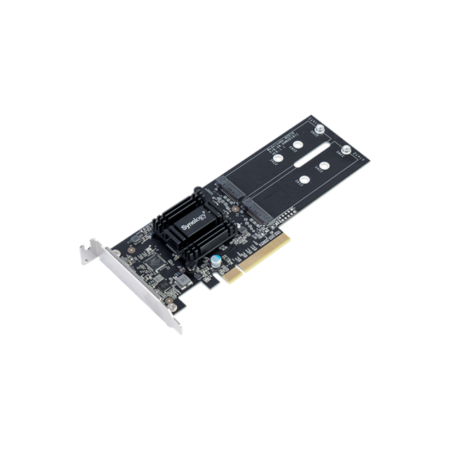
Synology Dual M.2 NVMe SSD Card M2D18
₹0.00 Read moreDesigned to supercharge your NAS I/O performance, Synology M.2 SSD adapter M2D18 significantly reduces random I/O latency, benefiting applications such as photo indexing, file search, and virtualization environments.
-
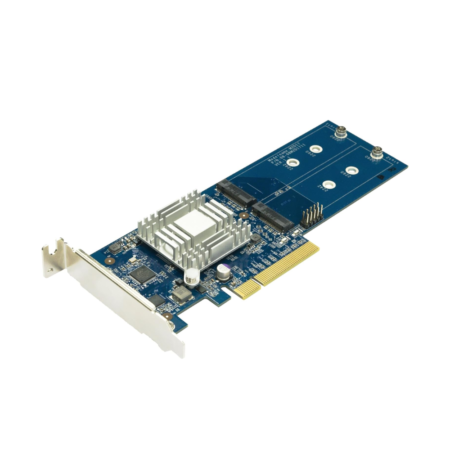
Synology Dual M.2 NVMe SSD Card M2D17
Read moreDual M.2 NVMe SSD Card
Dual M.2 SSD adapter card for better SSD caching
-
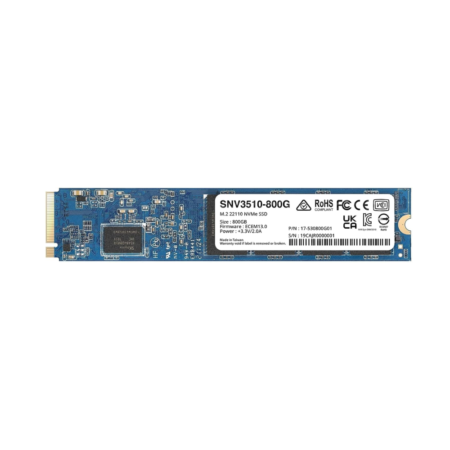
Synology M.2 22110 NVMe SSD SNV3510-800GB
Read moreSynology M.2-22110 NVMe PCIe SSD (Read-3,100 MB/s) (Write-1000 MB/s)
Up to 400,000/70,000 sustained 4K random read/write IOPS for demanding I/O Suitable for intensive caching workloads at up to 1,022 TBW
-
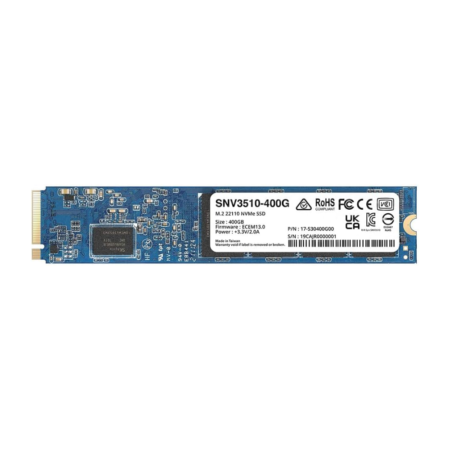
Synology M.2 22110 NVMe SSD SNV3510 400GB
₹19,300.00 Add to cartSynology M.2-22110 NVMe PCIe SSD (Read-3,000 MB/s) (Write-750 MB/s)
Up to 400,000/70,000 sustained 4K random read/write IOPS for demanding I/O Suitable for intensive caching workloads at up to 1,022 TBW
-
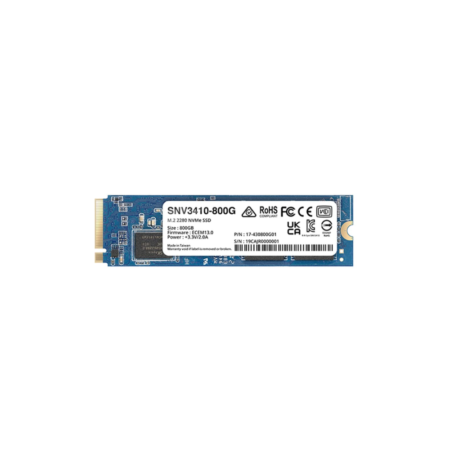
Synology M.2-2280 NVMe PCIe SSD SNV3410-800GB
Read moreSynology M.2-2280 NVMe PCIe SSD (Read-3,100 MB/s) (Write-1000 MB/s)
Up to 400,000/70,000 sustained 4K random read/write IOPS for demanding I/O Suitable for intensive caching workloads at up to 1,022 TBW
-
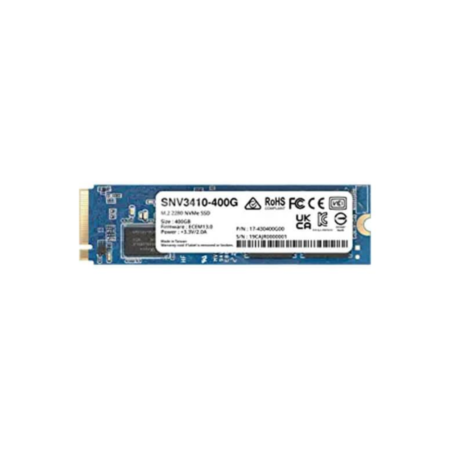
Synology M.2-2280 NVMe PCIe SSD SNV3410-400GB
Read moreSynology M.2-2280 NVMe PCIe SSD (Read-3,000 MB/s) (Write-750 MB/s)
Synology SNV3400/3500 Series NVMe SSDs are designed to intelligently work with Synology DiskStation Manager (DSM) to boost I/O performance. These high-performance NVMe drives accelerate the slower but higher-capacity storage space provided by traditional hard drives, enabling cost-effective, in-place upgrades for existing systems.

